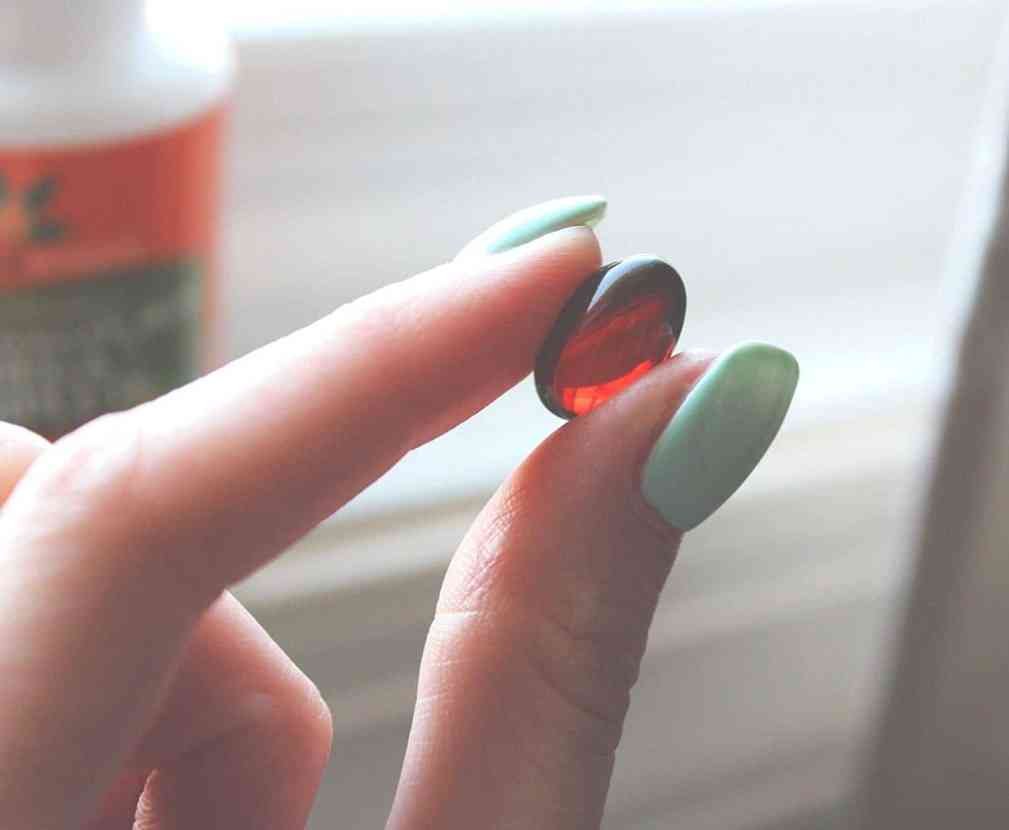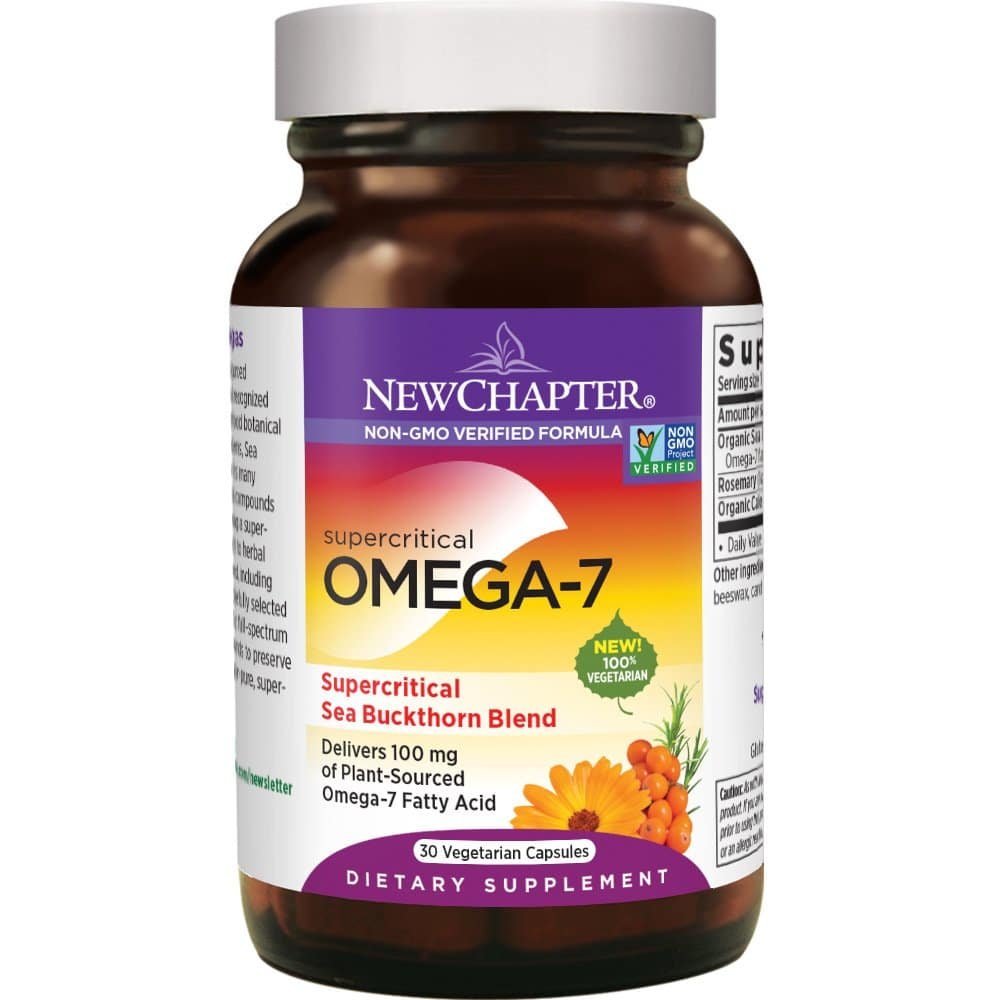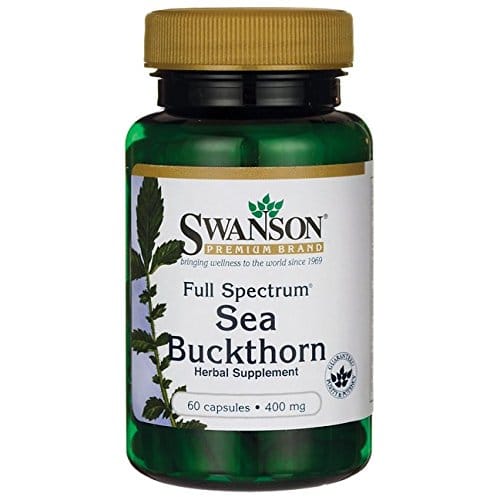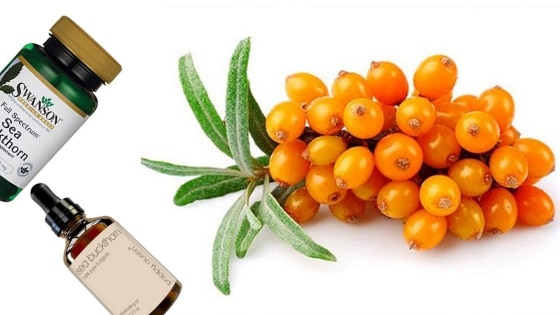Sea Buckthorn Oil: the next Superberry full of Omega-7
Sea buckthorn oil is particularly rich in Omega-7 fatty acid, the importance of which for human health was discovered only in 2008. Among other few sources (concentration of Omega-7 in which is not as high though) of this fatty acid are the following: Australian macadamia nut, mink fat, whale fat, and other similar exotics.
Only recently scientists started to investigate a unique fatty acid that, unlike Omega-3 has not yet become mainstream.
This novel fatty acid called Omega-7 appears to be effective in breaking the cycle of high blood sugar, it works great against metabolic disorders. Among other exceptional features of this fatty acid is the ability to positively influence the fat breakdown and on the increase in the enzymes involved in fat burning for energy. [1]
Sea buckthorn oil benefits: from ancient times till now
Sea buckthorn oil has been used for thousands of years as a natural remedy against various skin and body conditions. Even the ancient Greeks noticed that horses grazing in the thickets of this shrub have a special endurance and a thick shiny mane. Actually, the Latin name for sea buckthorn, Hippophae rhamnoides, is translated as “shiny horse.”

Many useful properties of sea buckthorn plant were mentioned in the ancient Greek medical texts of Theophrastus and Tibetan books on medicine. And today, the unique properties of sea buckthorn plant and fruits and sea buckthorn oil, in particular, are supported by various scientific studies..
The most valuable sea buckthorn product is sea buckthorn oil, made from the pulp of berries and seeds. The oil has an unusual orange-red color, fragrant aroma and rather delicate taste. Sea buckthorn oil has an extremely high content of:
- carotenoids (which are responsible for its reddish color),
- vitamin E in the form of tocopherols and tocotrienols,
- vitamin C (sea buckthorn oil contains significantly more Vitamin C than lemons and most of the other vegetable oils).
- vitamins K and P
- Various minerals, such as magnesium and zinc, phytosterols, bioflavonoids, phytoncides, and many other beneficial substances.

But the most outstanding feature of sea buckthorn oil is that it has incredibly high (23-31%) Omega-7 content. This concentration of Omega-7 is the highest among all known foods.
Omega-7 is a monounsaturated fatty acid, which was discovered in 2008. The two most common omega-7 fatty acids in nature are palmitoleic acid and vaccenic acid.
Sea buckthorn oil is one of the richest natural sources of Omega-7 in the form of palmitoleic acid.
This fatty acid is synthesized in the body in the liver and adipose tissue. However, insufficient synthesis of this acid leads to the development of a number of pathologies.
Unique Benefits of Omega-7 for Health
Fatty acids found in Omega-7 can help to improve your health significantly and in many different ways. One of the main health benefits of Omega-7 are the following:
- Omega 7 reduces inflammation. This fatty acid plays an important role in preserving moisture in the mucous membranes of internal organs, such as the digestive tract, upper respiratory tract and others. According to a 2017 scientific study [2], Cis-palmitoleic acid (exactly this form is contained in sea buckthorn oil) “as co-adjuvant therapy for 8 weeks seems to decrease the inflammatory activity” and helps patients with ulcerative colitis. It was also discovered, that people suffering from ulcerative colitis or other inflammatory bowel diseases often have low levels of palmitoleic acid. Therefore, sea buckthorn oil is prescribed to them as part of complex therapy.
- Skin moisturizing. Omega-7 keeps our skin hydrated and prevents it from losing its elasticity; it also protects your skin from premature aging. According to another scientific study made in 2017 [3], sea buckthorn oil contains “sterols, which strengthens the lipid barrier of the skin, protects from harmful substances of external origin and reduces the excessive water loss through the epidermis, thereby improving the skin elasticity and firmness”. No wonder, that sea buckthorn oil has become the latest “holy grail” ingredient in the quest for glowing, healthy skin.
- Weight Loss benefits of Omega 7. It is believed that Omega-7 is stimulating insulin and reduces insulin resistance of tissues and therefore it stimulates the body to stop storing excess fat. In this way taking sea buckthorn oil internal helps to prevent obesity. Currently, palmitoleic acid (as a component of sea buckthorn oil) is included in many weight loss programs.
- Prevention and treatment of a number of gastrointestinal diseases. Sea buckthorn oil is used in the complex treatment of the following diseases: gastritis with increased acidity of gastric juice, colitis, enterocolitis, gastric and duodenal ulcers, tumors in the gastrointestinal tract, esophagitis, gastroduodenitis, as well as fatty degeneration of the liver and cholelithiasis (not in the acute stage).
- Curing some eye diseases. Due to the very high content of carotenoids (including zeaxanthin), sea buckthorn oil is an excellent prophylactic against most eye diseases. It is used in the complex treatment of conjunctivitis, traumatic corneal lesions, eye burns.

Side effects and precautions when using Sea buckthorn oil
Bioactive substances contained in sea buckthorn oil can be harmful in some cases. Sea buckthorn oil should not be used for:
- pancreatitis,
- cholecystitis,
- acute liver diseases,
- exacerbation of gastric and duodenal ulcers,
- urolithiasis.
Dosage of sea buckthorn oil supplements
If you are willing to take sea buckthorn as a supplement, make sure to follow the correct dosage.
Sea buckthorn is sold in two forms: 1) as either a dry plant extract (of which both the berries and the leaves are viable options) or 2) as oil made from the berries (in liquid form or in a form of capsules).

When taking dry extracts, the range of 500-2,000mg is used for both the berry extracts and the leaf extracts. For the oil, slightly higher dosage ranges (2,000-5,000mg) are used daily.
If you prefer to consume liquid sea buckthorn oil, take one teaspoon (5 ml) per day, preferably 30 minutes before meals.

Disclaimer: The contents of this website are for informational purposes only and do not constitute medical advice; the content is not intended to be a substitute for professional medical advice, diagnosis, or treatment. Always seek the advice of a physician or other qualified health provider with any questions you may have regarding a medical condition.
References
- Bolsoni-Lopes A, Festuccia WT, Farias TS, et al. Palmitoleic acid (n-7) increases white adipocyte lipolysis and lipase content in a PPARalpha-dependent manner. Am J Physiol Endocrinol Metab. 2013;305(9):E1093-102.
- Effect of Cis-palmitoleic acid supplementation on inflammation and expression of HNF4γ, HNF4α and IL6 in patients with ulcerative colitis. Minerva Gastroenterol Dietol. 2017 Sep;63(3):257-263. doi: 10.23736/S1121-421X.17.02367-4. Epub 2017 Feb 9.
- Zielińska, A., & Nowak, I. (2017). Abundance of active ingredients in sea-buckthorn oil. Lipids in health and disease, 16(1), 95. doi:10.1186/s12944-017-0469-7





